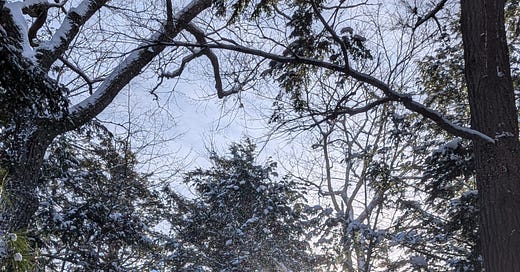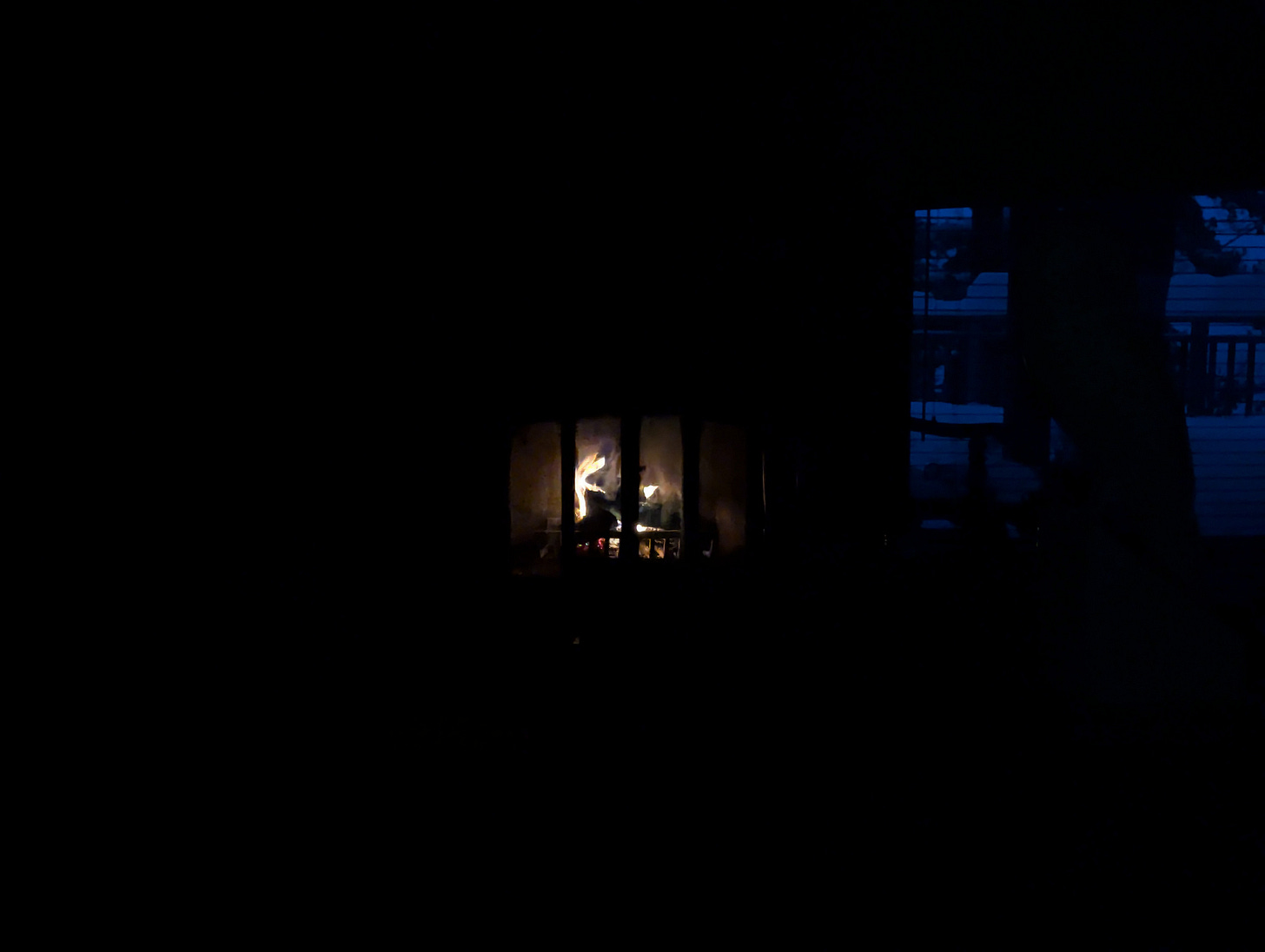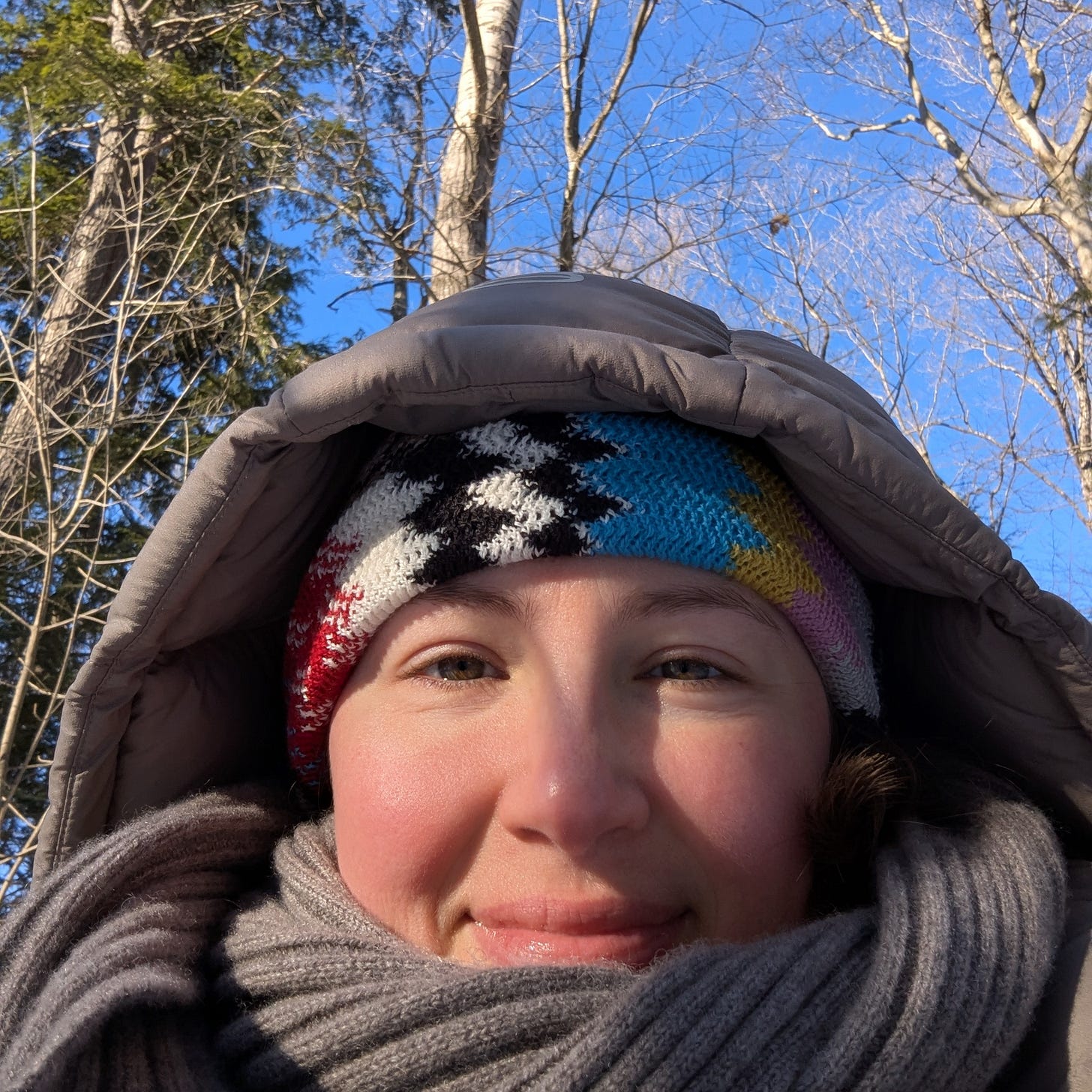Finding Kinship with Herbs & Herbalists
More than ever, we need care webs stretching beyond the interweb that encapsulate our more-than-human kin.
Health is all too political. Many bodyminds are disenfranchised, violated, or extinguished for simply existing — though existence is rarely that simple. Under neoliberal capitalism, health is framed as a personal achievement —aspirational, moralistic, and often unattainable. We're repeatedly sold self-optimisation through flawed logics of scarcity and eugenics. This worldview ignores how health is shaped by systemic barriers/possibilities like power dynamics and access to resources.
“Perfect health,” as defined by dominant discourses, often comes at great cost —not just financially, but through the harm inflicted on the majority for the gain of a few. But health doesn’t have to mean chasing a chimera of perfection. Rather, it can be fluid and relational, defined by our connections to ourselves, community, and the land.
Kinship is part and parcel of health. Not only are we interdependent creatures; we are ecosystems within ecosystems.
When I speak of kinship, I mean human, animal, plant, mineral, and fungal kin.
In relation to herbalism, kinship is about fostering attentive, co-regulating relationships with plants that open the door to healing — even when healing is not the aim. It’s also about transmitting and stewarding ancestral/interspecies healing knowledge, ensuring that this knowledge is not exploited by domineering systems and cultures.
Plants have all kinds of creative ways to reveal and deepen their kinship with us. Whether it’s through walking among them, planting and harvesting, composting, watering a pot by the window, or enjoying meals with gratitude for how they arrived on our plates, they remind us of our interdependence. And of course, there’s the way they show up in our lives as medicines.
For me, last year, medicinal plants kept presenting themselves in my dreams.
Even when the rest of a dream slipped away, when herbs appeared, they did so as technicolor messengers, insisting, “Work with me!” How or why they are so generous, I still don’t understand. That’s precisely how elder tree medicine came back into my life last fall: when I squished their wine-colored berries in my dream-hands and twirled a stem of their delicate, spindly flowers.
The dream braided itself with memories of harvesting nearly overripe elderflowers during UK springs to make cordial, a taste that has lingered on my tongue for its aromatic individuality. I didn’t plan to work with elderberry syrup this winter until I received their invitation and knew they were looking out for me. My winter has been sweeter because of them, with spiced elderberry syrup in hot toddies and sipped straight from the bottle.
Pulling plant oracle cards, burning their dried leaves, working with flower essences before bed, or remembering to call them into your dreams are all ways to make contact, to start a conversation.
Have plants spoken to you lately? Have you spoken to plants? (Get weird; it’s okay!) What are some ways you can learn to receive and speak their languages more clearly?
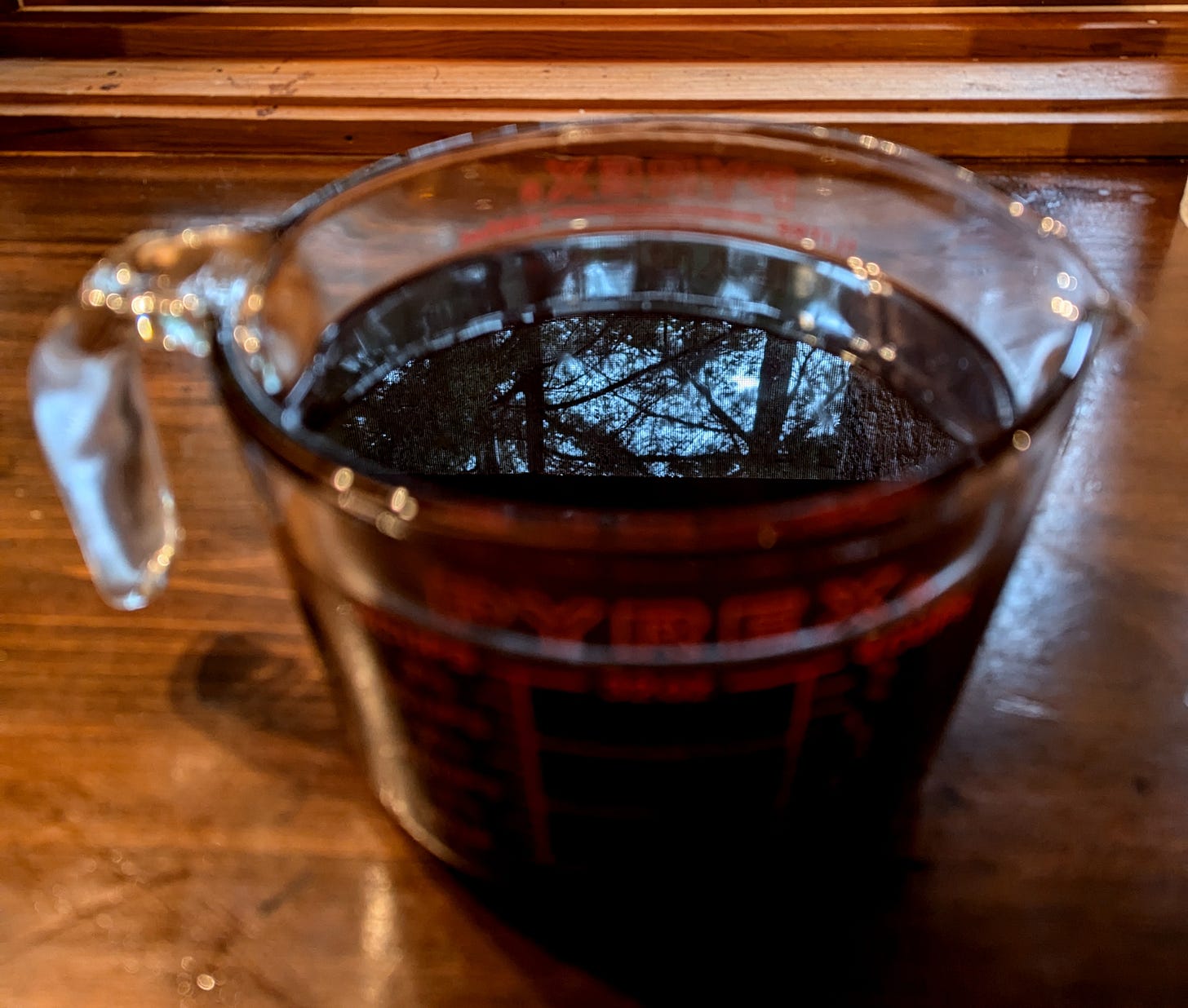
Herbalists as Kin?
The unregulated nature of clinical herbalism in so-called Canada and the US is both a rose and a thorn. The rose is that we are free from the constraints of standardisation, allowing the diversity of herbal traditions to thrive — from kitchen and hedge witchery to curanderismo and phytotherapy. Without direct government oversight, many herbalists ensure quality care through peer review, registering with provincial or national associations like the American Herbalists Guild, or engaging in mentorship and accountability circles.
The thorn: regulation and licensure often lend credibility and socioeconomic weight to other healthcare providers, which can protect patients and also reinforce biases toward dominant medical paradigms. The medical-industrial complex and adjacent industries have instilled fear, confusion, and doubt in the public’s mind about herbalism. While licensed providers may be trusted by virtue of their accreditation, herbalists must often spend years cultivating trust through consistent results and community relationships to demonstrate experiential expertise.
For budding herbalists, gaining hands-on clinical experience in an unregulated field can be a long, winding, and expensive process. Many get on the hamster wheel of beginner-to-intermediate programs, which are great for personal or family care, but often fall short of equipping herbalists to manage complex conditions in a clinical setting. In the past, herbal apprenticeships were a common way to learn from seasoned practitioners and "graduate" into one's own practice. However, these opportunities have become increasingly rare, often replaced by pricey clinical intensives that may still lack adequate mentorship.
Due to these barriers and more, the number of practicing clinical herbalists remains relatively small compared to fields like naturopathy or acupuncture. Many herbalists work in rural areas, often supporting entire communities while remaining geographically and socially isolated from other herbalists or healthcare providers.
I believe herbalism should remain unregulated, yet I find existing herbal associations insufficient for meeting the challenges we face. As state violence and climate crises escalate and other shit hits the apocalyptic fan, we need a grassroots community of practice. This community must reject Western and Northern biases, centering instead on collective liberation — including the liberation of our plant kin.
This is why my herbalist friend Emily and I created Herbal Kin — a greenhouse for the intentional growth of liberatory herbalism. Our peer support and review network for budding clinical herbalists launches this Sunday, January 12, from 6:30–8:00 pm ET. Participation is free, with an option to donate to sustain the work. To sign up or share with others, please check out this interest form. Registration is ongoing!
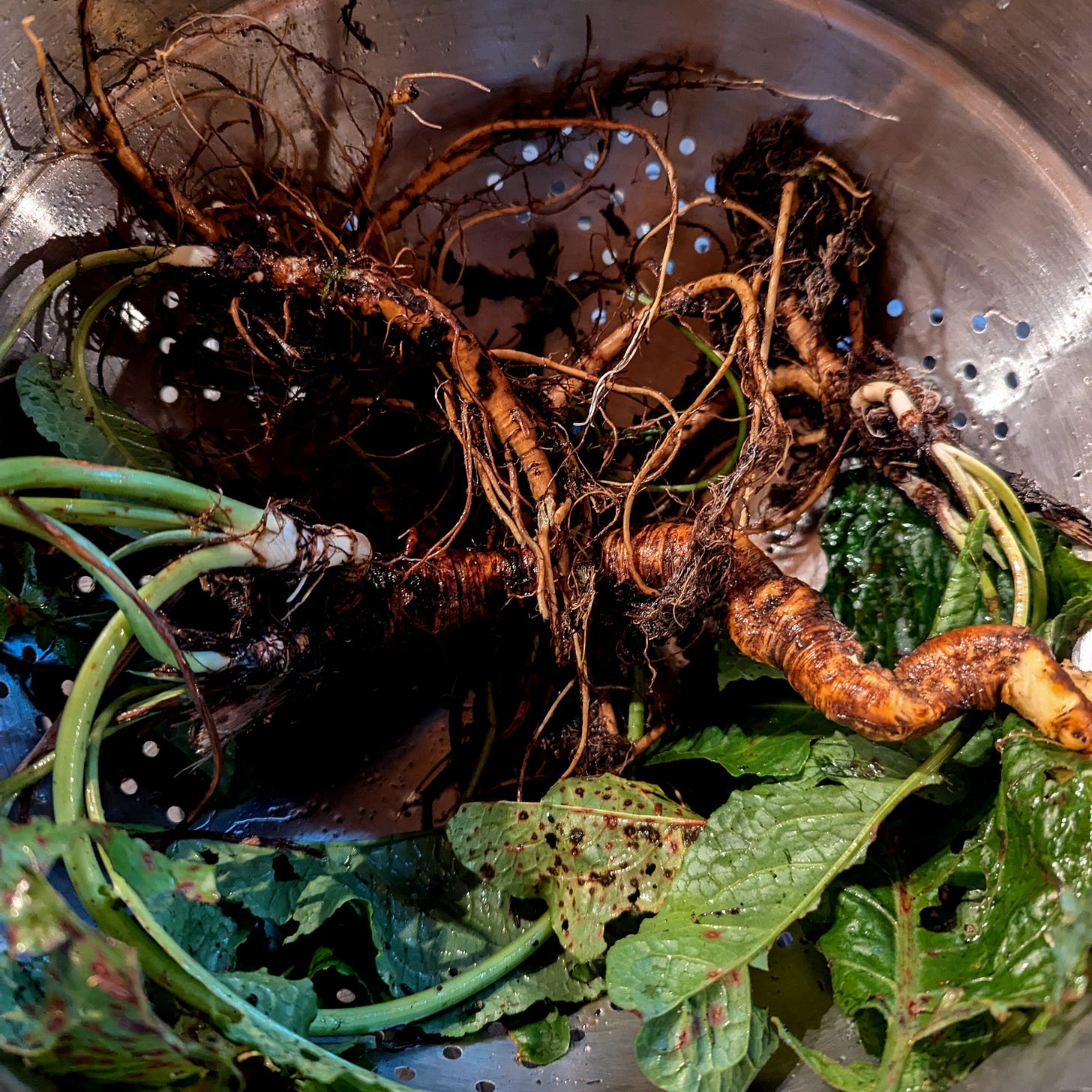
Not Too Quiet
Winter well gentle one,
In this season of speaking softly.
Let warm fires thaw cold bones,
And make veins run right
To the aching core.
Remember that
Even a candle can penetrate
The winter blue austerity.
And reflecting (on) its light
Can remind us of where
Darkness cannot reach.
With Earth-wise care,
aleksa
Interweb Encounters
Liberatory Wellness Network: I’m planning to join this community hub for radical healthcare providers soon, which is changing the way mental and physical healthcare are delivered. Check out their directory to find practitioners rooted in justice-focused and transformative frameworks.
Collaging Possibility & Futurity: Working with your hands and making art can really ground community organising. This opportunity to “activate mixed media for protest, perspective shifting and beyond” seems really refreshing and needed right now. Proceeds go to Palestinians in Gaza. (Jan. 23, 7pm ET, Zoom.)
Zines4Queers: All these zines! Especially the ones Oumou made in the “For Those Who Have Lived Without” trilogy.
Writing with Plants: I’m taking part in this herbal writing circle hosted by installation artist, energetic herbalist and earthling Jamil Moises Liban-Ortanez. Check it out if you want to deepen your relationship with the “plancestors” through writing, meditation and more.
Care Webs: Revisiting this essay by disability justice organiser and writer Leah Lakshmi Piepzna-Samarasinha about creating collective access and disabled joy through networks of care.
Living Funeral Ceremony: I’m very intrigued by this experiential opportunity to contemplate one’s own mortality with Death Doula Suzanne Belle Stone (virtual/in person).
H&H Offerings
Herbal Consultations: Accessible care rooted in anti-oppressive praxes.
The Inner Sanctum Course: Strengthen your capacity for emotional regulation and liberation after stressful experiences with Earth-wise care practices.
Herbal Kin: Supporting Herbalists in Practice: Build your clinical herbalism practice in a peer-led, justice-oriented network.
Food for Wisdom
"How do you know when to…
Look in?
When something is making you feel icky
When the world is telling you something and you don’t agree
When you’re afraid
When you’re faced with conflicting opinions
Anytime
Look out?
When you think you’re alone
When you need to check your bias
When you’re devoid of inspiration and curiosity
When you’ve lost connection to others
When you’re sick of looking in”
-Andrea Small & Kelly Schmutte, Navigating Ambiguity


